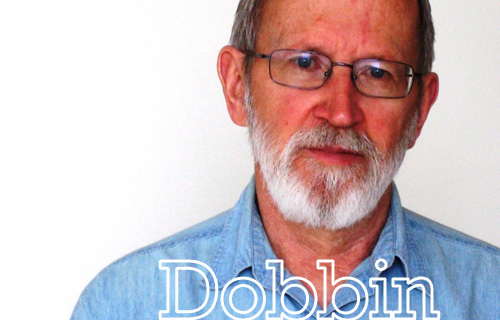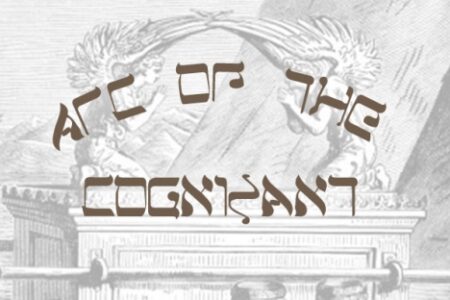Is something happening here?
Occupy Wall Street – and now Bay Street? The 99 per cent? Conservatives losing elections all over the country? A Red Tory elected head of the Alberta Conservatives? American billionaires demanding to be taxed at higher rates?
Is something happening here?
Perhaps the first indication was the totally unexpected reaction to Jack Layton’s death. It may be that it was unexpected because so many people had become numbed by the state of the world.
Not just the election of a majority Harper government and the terrible consequences it would bring. But famine and war and economic meltdown and the pushing to the back burner of the life and death issue of climate change.
Wasn’t everyone at home with the blanket pulled over their heads? Would they even know that Jack Layton died?
Apparently, yes. And in a response that was deeply ironic, that one last piece of terrible news (how many signs do progressives need) instead of driving people to greater despair, released a flood of both grief and celebration of the best of Canadian values.
Cynics predicted Layton would soon be forgotten and that may yet be true. But the political landscape does seem to be changing and there does seem to be a connection. The reasons are not clear and differ from place to place.
Conservatives were notably quieted by the Ontario election where they – and almost everybody else – were sure that the Hudak Barbarian Party would join its civic and federal counterparts. Stephen Harper mused at a barbeque for Toronto’s right-wing populist mayor Rob Ford that with three right-wing governments in place they could rapidly undo the “damage” the NDP (and other left-wing miscreants) had done. And they would have made quite a team – only three horsemen but apocalyptic nonetheless.
But it seems that Harper, as he often does, got ahead of himself in his fantasy world of “Conservative Canada.” He mused after the election that Canada was, after all, conservative, and Canada’s party was the Conservative Party. And while the Ontario Conservatives did gain at the expense of the Liberals, so did the NDP engaging people successfully for the first time since Bob Rae’s unfortunate reign.
But it was never true that Canada was “conservative” and the Ontario election wasn’t the only proof of that. Harper got elected with just under 40% of the vote – and barely 60% actually cast ballots. That does not add up to declaring Canada conservative. Harper should know – his voter suppression strategy worked and a huge number of non-Conservatives stayed home. They were the very people who cared enough about democracy and the country that they found the vicious politics of the PM too much to bear.
Canada remains, in its values, much more social democratic than conservative, if by that we mean they support government intervention to ensure a level of fairness, equity and economic security. When Harper burbled on about undoing the NDP’s legacy he reminded a lot of people that he wasn’t an ordinary politician. He is a politician with an ideological (and un-Canadian) agenda.
Toronto mayor Rob Ford’s Harperesque contempt for democracy and for anyone with a differing view also served to remind Ontarians that they actually had stuff that needed protecting from the likes of Hudak. This was especially true of Toronto which did not give a single seat to the Conservatives. When you go zero for 23 in the big city, it’s hard to make it up in red neck country.
Manitoba’s giddy conservatives of two months back are very likely hitting the bottle, too, after losing an election they were supposed to win handily over the NDP’s uncharismatic Greg Selinger. It was incredibly close – the perverse past the post can also benefit the NDP sometimes – as it had to be after three terms of NDP government. Nonetheless, Manitobans were not prepared to jettison what was a very moderate regime and its public service approach to governance for an ideological experiment with the Conservatives.
And even Alberta surprised everyone with the one party state choosing a new leader whose professional work, believe it or not, was as an international human rights lawyer. The impression has always been that most Alberta Conservatives don’t know what human rights were. To be sure the new leader is hardly a left-winger and is totally committed to the tar sands.
But she could certainly be seen to be in the tradition, more or less, of Peter Lougheed whose expansion of the state in that province – universities, industrial policies, child care – made him look pretty good compared to today’s corporate flunkies and libertarians.
Perhaps it’s true that Canadians are slow to anger, or even to pay attention to their own interests. But slow doesn’t mean never and with Liberal and NDP incumbent governments defying the odds and Alberta’s Conservative grass roots demanding more than just a management committee for capitalism, it is arguable that the long period of Canadian drift into disinterested cynicism is ending.
And at the same time there may well be a flowering of the social movement energy that has been lacking for too long in this country. The developments in Ontario, Manitoba and Alberta owed very little to extra-parliamentary politics as this level of politics has been mostly moribund.
But the prospect of a Canadian version of Occupy Wall Street with its outpouring of anger at finance capital, might just herald a return to the kind of energy and moral indignation that are at the root of every successful social movement.
The organizing meeting for the Occupy event (to be held October 15th) in Vancouver had so many people show up that the room could not accommodate everyone. The anger at the grotesque greed of the 1% (we might want to expand this to the 5%, at least), the spectre of the banks making billions in profits, the brutal and growing inequality – seems to have finally coalesced into a massive collective expression.
Why now? Perhaps it is the international dimension of this spontaneous burst of political action. The notion that Stephen Harper would respond even to large demonstrations is given little credibility. But adding your body and voice to international outrage is something else – solidarity with others experiencing the same frustrated rage is cathartic.
Do the masses gathering at the heart of finance capital around the world identify with the Greeks, Irish, Brits, French, Spanish and Italian workers who are demanding to know why they are being punished for the bankers’ crimes?
It could be seen as citizen globalization in counterpoint to corporate globalization. It riffs off the Arab spring and for many perhaps even the shift to the left in many Latin American countries where citizens, after years of repression, are now being listened to.
And of course everyone with hopes for this new spontaneous revolt worries about how it will last, who will inspire its direction, what sorts of “demands” will it make, what organizational form it will take, how will it actually challenge power. And power, of course, is still at the heart of the question. They have it and we don’t.
But perhaps these questions are premature. This expression of anger (and of love and caring) is not primarily political. It is cultural. And if it manages to wake people from their long acquiescence to the exercise of corporate power and to government contempt for democracy it will have accomplished what nothing else to date has done. It may not not enough. But without it we cannot begin to maker a better world.
Murray Dobbin is a writer, activist and journalist. This column originally appeared on his blog.























Comments